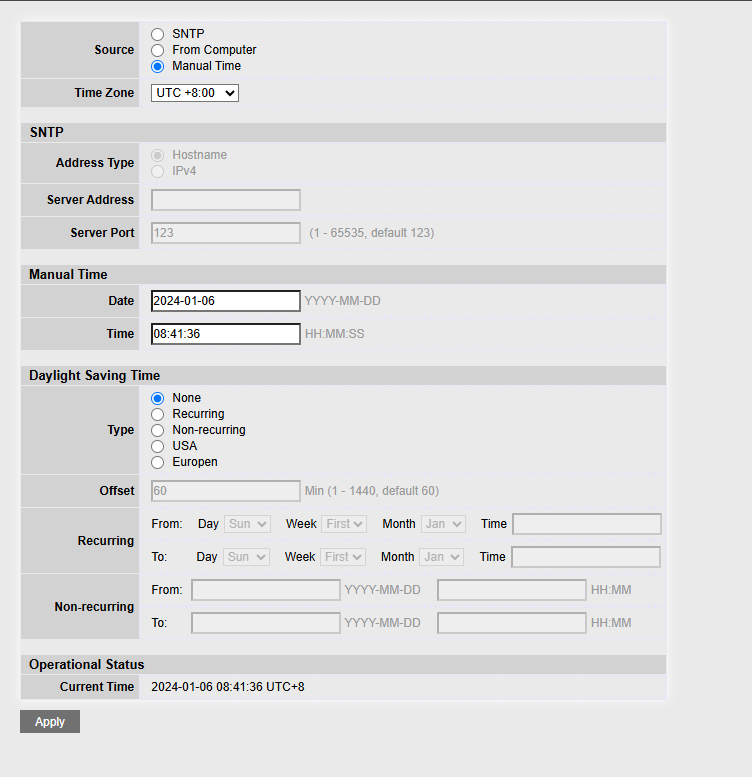1. Configure the DNS
DNS stands for DomainNameSystem, which is used to name computer and network services organized into a domain hierarchy. Domain names are composed of a string of words or abbreviations separated by dots. Each domain name corresponds to a unique IP address. On the Internet, there is a one-to-one correspondence between domain names and IP addresses. DNS naming is used in TCP/IP networks such as the Internet to find computers and services by user-friendly names. DNS is a core service of the Internet, which acts as a distributed database that maps domain names and IP addresses to each other.
Operation steps:
In the navigation tree, choose Network Configuration > DNS Settings. The DNS Settings page is displayed.

Click Add to configure the DNS server

Configure the DNS host
2.1 In the navigation tree, choose Network Configuration > DNS Host Configuration. The DNS Host Configuration page is displayed.
2.2 Click Add. The DNS host configuration page is displayed
3. System time
The system time function is used to configure the system time of the device, select the system time source, and configure the DST.
Operation procedure
- In the navigation tree, choose Network Settings > System Time. The System Time interface is displayed.

Configuration item description
Time source Select the time source. You can use SNTP, a PC, or manually configure the time source
Time Zone Set Time Zone
Address Type Host name or IPv4 address (Set when the time source is SNTP)
Server Address Server address (Set when the time source is SNTP)
Server Port Number Server port number (Set when the time source is SNTP)
Date Date information, year - month - day (Time source manually set)
Time Time information, hour - minute - second (time source manually set)
Type Daylight Saving Time Type: None, cyclic, non-cyclic, United States, Europe
Offset Time Indicates the DST offset time
Cyclic Daylight Saving Time Cyclic mode
Non-cyclic daylight saving Time (DST) non-cyclic mode
最后编辑:todaair01 更新时间:2025-03-25 17:06
